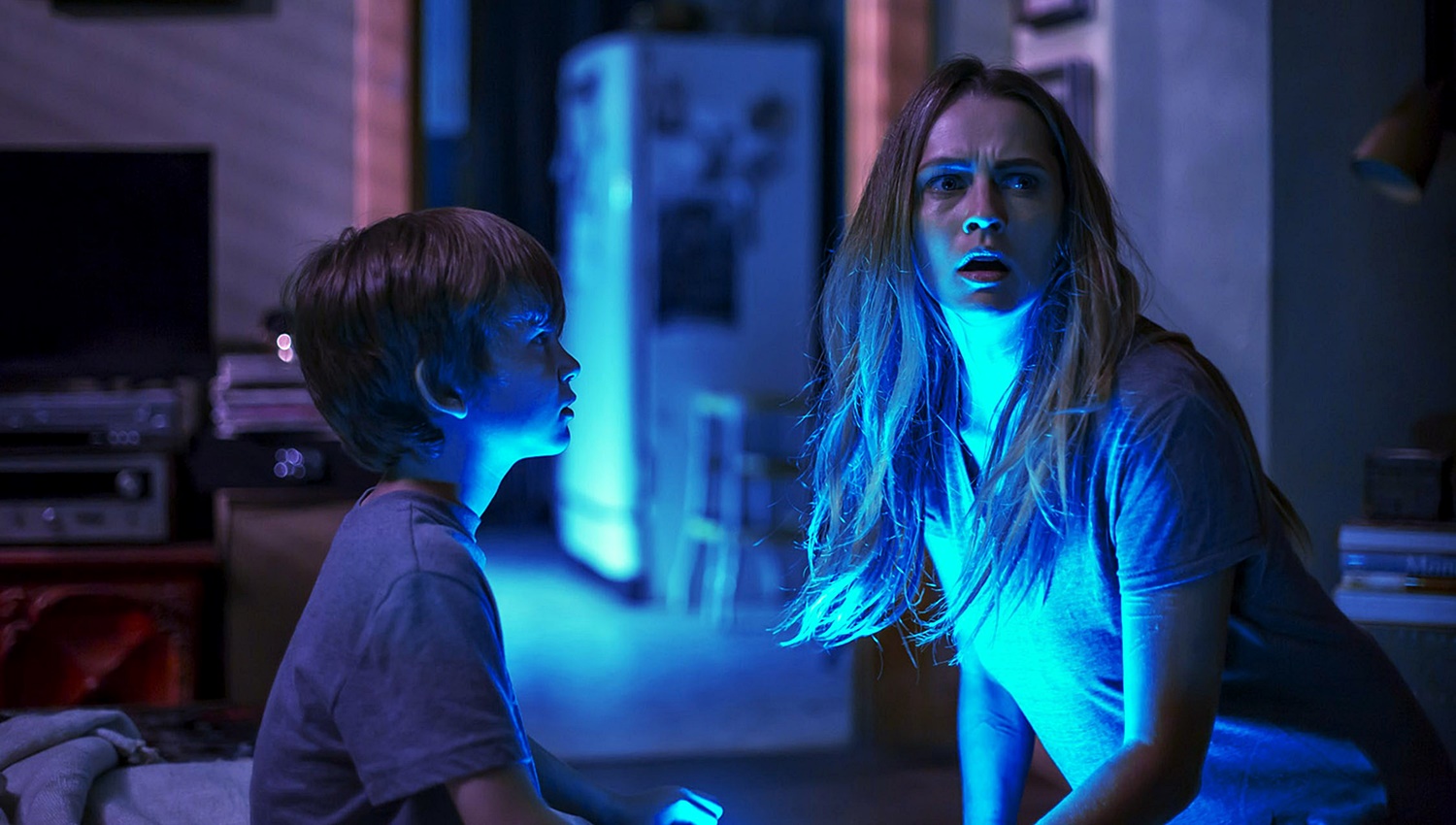
Lights Out
Dustin Chase
Having the writer/director of the award winning short film “Lights Out” adapt his creepy story for the big screen was a smart move. David F. Sandberg might just be the next big name in the horror genre, having already been tapped to direct the sequel to “Annabelle” even before “Lights Out” hits theaters. Sandberg doesn’t necessarily try to reformat the horror genre as much as he tries to perfect the traditionalism. “Lights Out” is succinct, it runs at a quick 81 minutes and has a powerful ending that doesn’t bother with a sequel set up. Sandberg also adheres to the rules he creates throughout the film. The screenplay understands that the audience wants to be scared, jump in their seat, and gives them that, but doesn’t sacrifice the story in doing so.
9-year-old Martin (Bateman) is falling asleep in homeroom because he can’t sleep at home. Since his father passed away, Martin’s mother Sophie (Bello) keeps the house dark and talks to someone in her room, someone who isn’t really there. Martin begs to stay with his estranged step-sister Rebecca (Palmer), who recognizes her mother’s behavior. Sophie’s children confront her about the circumstances, they realize things are getting worse based on their mother’s erratic state. Research reveals as child, Sophie was institutionalized for depression and became friends with another girl named Diana who later died. Sophie still talks to Diana as if she is in a room but only when the lights are turned off. Martin and Rebecca become terrorized by this spirit, whose existence is threatened by their presence.
. It’s a ride more than it is a film, where plot and story mean as much as scares and frights.
Sandberg uses the stereotypical creepy house, jump scares, and unreliable electricity, but something about his presentation rises above other films in the genre. The film opens with a scene that certainly pays homage to the source material, featuring Sandberg’s wife Lotta Losten, who appeared in the short. The screenplay doesn’t spend too much time trying to figure out the source of terror, nor does it waste time on characters who don’t believe each other. Despite its moments of darkness and terror, “Lights Out” does have its cleverness (which thankfully takes places of the comedy) in a scene stealing moment with Rebecca’s boyfriend (DiPersia) who answers the audience’s frustration on why cell phones are not being used. The film’s biggest reoccurring frustration is all characters’ inability to open or knock down doors.
Australian actress Palmer (“I Am Number Four”, “The Choice”) has made a slew of terrible movies. She’s cast here more for her reactions rather than her acting, falling into the cliché of horror movie characters who walk terribly slow to investigate something suspicious. Most of this can be forgiven due to the films short running time. In an age where films have gotten increasingly longer, especially Summer tent pole movies, “Lights Out” gets you in and out. It’s a ride more than it is a film, where plot and story mean as much as scares and frights.
Final Thought
An above average horror flick that improves on stereotypes and clichés rather than embrace them.
